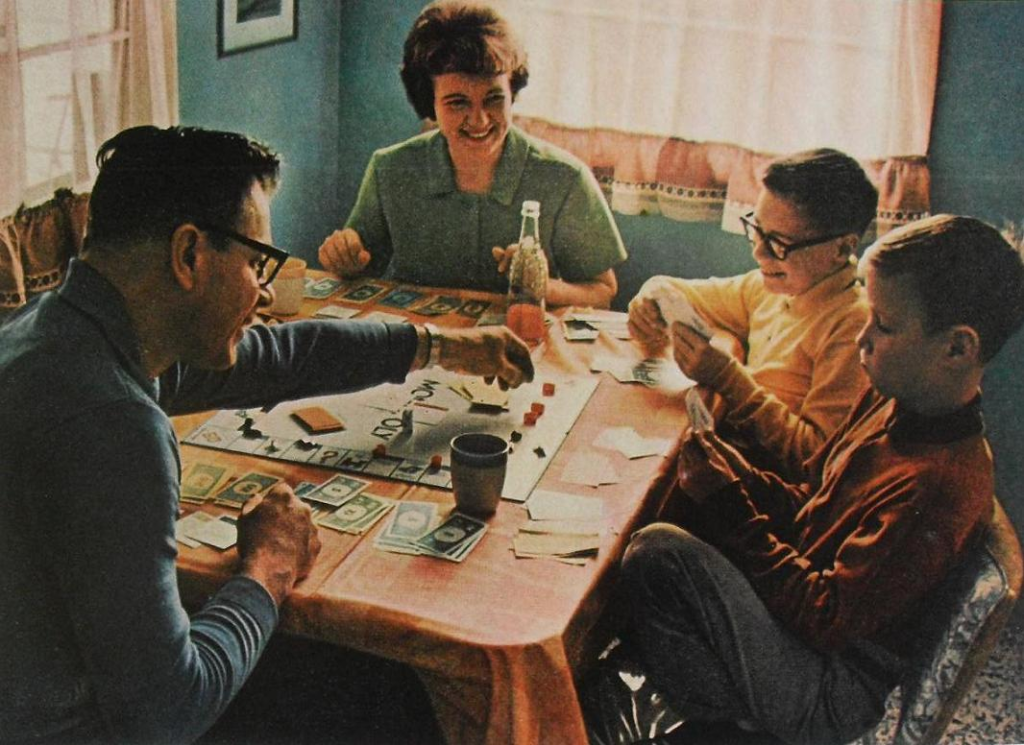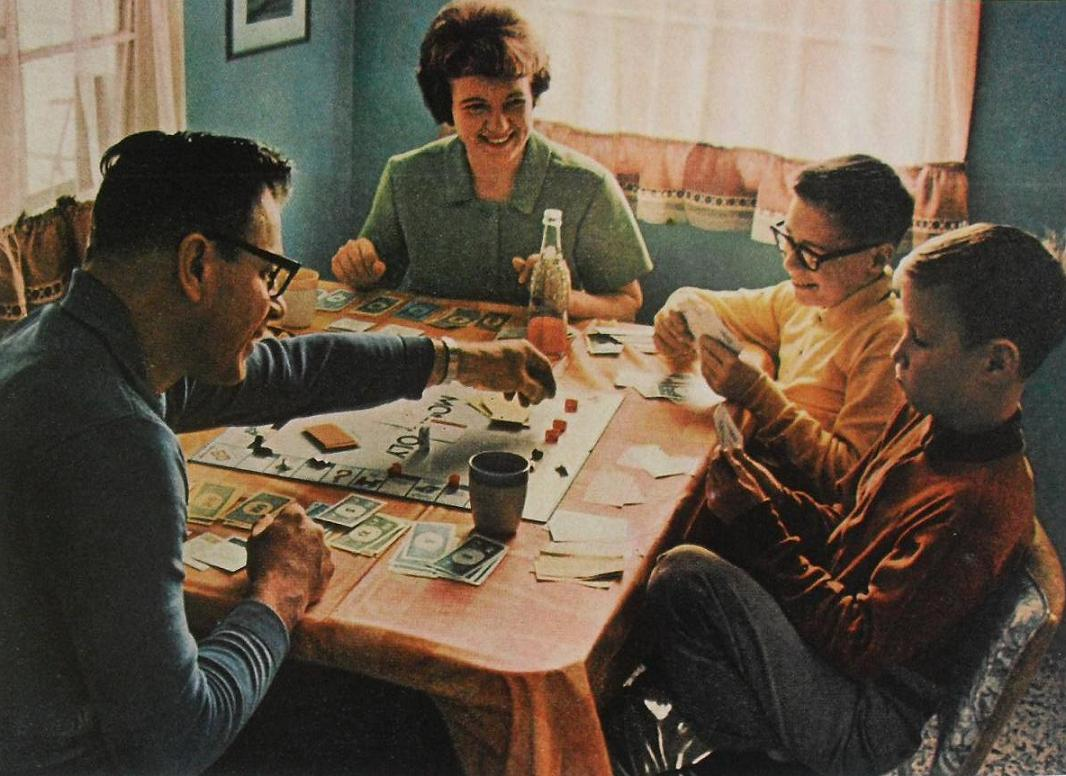
Over the last 20 years, I have spoken to thousands of people of all ages about building great enterprises and thinking entrepreneurially. Few things will make the USA – and the world – more prosperous than a growing population of people who think like entrepreneurs, who see opportunities to serve others all around them, and who develop the confidence to create enterprises, for profit or not. I have devoted much of my life to this end, including through my latest startup, Bigwig Games.
Based on this experience, I believe we should start celebrating enterprise and teaching how it works at an early age. Young minds are naturally curious. By the end of elementary school, most have learned a great deal about the environment and many other topics. But those same bright young minds often graduate from high school without any real understanding of how the economy works or how enterprises are created and built. My best audiences – the most curious, unafraid, and bold in their questioning – are between the ages of 15 and 18. By their early 20s, when most business education takes place, personalities and interests are often already well-formed. Those who go on to great success in sports and entertainment are often engaged in their calling before they reach 18.
The great physicist Enrico Fermi told his graduate students – eager to teach advanced courses and to avoid beginners – that the most important physics class they would ever teach was the first course students took. This is as true in business and economics as it is in science. Too often such classes are taught by those lacking experience in, knowledge of, or enthusiasm for business.
Another key conclusion for me: there is often a large gap between business reality and business education. If we close this gap, we can change the world. Let me explain.
The actual world of business that I have studied since I started subscribing to Fortune at age 12 and experienced since 18 is an exciting, dynamic world. A world that is every bit as challenging, diverse, stimulating, and potentially rewarding as playing a sport or mastering painting or piano.
The world of business is full of past and present heroes to study, learn from, and be inspired by. As well as a few villains to teach us “what not to do.”
Above all else, it is the story of people who often devoted their entire lives to fulfilling one purpose, to building one enterprise: Bill Gates and Microsoft, Steve Jobs at Apple, Fred Smith and FedEx, Howard Schultz at Starbucks, Jim Sinegal at Costco, Henry Ford and John Rockefeller further back in time, and many others.
On the other hand, there is a mindset about business abroad in the land that is very different. In a recent meeting about Bigwig Games, an attorney said, “It depends on what your exit strategy is,” as if having an “exit strategy” was a normal, expected, and important part of understanding business.
If one sits in most undergraduate and MBA courses these days, you might come to the same conclusion. You would likely be urged to include an exit strategy in your formal business plans.
When Bill Gates dreamed of a computer on every desk, did he have an exit strategy? When Fred Smith got that famous mediocre grade on his Yale term paper about the FedEx idea, was he dreaming of the day he would sell out? Was Steve Jobs just awaiting the day he could “move on” from Apple? I don’t think so.
I have never written an “exit strategy” into any of my many business plans, some of which led to successful businesses.
Do I not place a priority on enriching my investors? Of course I do. The moment an entrepreneur accepts outside funding, providing a return to investors becomes a critical long-term goal. “Long-term” is the concept that most matters here. Both of my two successful businesses were in fact sold for a nice return to early stage investors – the purchase prices totaled $160 million.
Throughout history, most businesses, even the giant ones of the future like Wal-Mart and Microsoft, have been funded by individual investors (“angels”) and families investing on their own behalf, rather than by venture capitalists and other organized professional investors. While Venture Capital firms look for a return within 10 years or less, angels often have a longer time frame.
When Warren Buffett buys a company or a stock, he is not trying to figure when he will get out. People who build great, lasting businesses have to be thinking further out into the future than 5 or 10 years.
Any study of returns on investment and business success indicates that the greatest, most valuable, and most durably profitable enterprises are built not just to make money, but they are built to serve a purpose.
In 1982 I met an Austin “health food nut” named John Mackey. He and his friends were in the process of building a second “Whole Foods Market” store, hoping to grow upwards from annual sales of about $10,000,000. John was obsessed with the idea that Americans’ lives would be longer and better if they ate healthy foods. He still is. As is his company, except it is bigger and better. Last year, Whole Foods Market generated $14.2 billion in sales. They have created 87,000 jobs and opened over 400 stores. That’s what I call purposeful enterprise!
I cite the example of “exit strategy” thinking, but it is only the tip of the iceberg. Take many if not most business classes and you are likely to come out thinking business is:
- Primarily a way to make money.
- Just a bunch of numbers.
- Conquerable with the analytic left brain working alone.
- Boring.
The overarching feeling is that business is strictly a means to an end – usually a means to get wealthy. What a tragic way to think of enterprise creation and all the good that it can do for the world.
The business that is taught in so much of our “business education” system is a mechanical concept of business which has little or no passion except the passion for wealth.
This is an enormous disservice to society – most of all a disservice to business and entrepreneurship.
My complaint is useless without some suggestions for better informing minds, especially young ones. Here are two key ideas:
1. Use biography to teach and inspire.
When speaking to potential entrepreneurs, among the most common obstacles are ideas like:
- Only wizards or geniuses succeed.
- People are born with these skills and attitudes; they are not something you can learn and practice.
- Even one failure will mark you as a loser.
Each of those myths and many more are quickly dispelled by any study of such life stories.
Biography can be communicated in many ways, from in person storytelling to videos and books. Movies like Tucker and The Aviator give the viewer some sense of what entrepreneurship is all about. The Social Network (about Facebook) is also excellent, but should not be taken as the normal course of business. Books are even better – try the biographies listed at the end of this newsletter.
2. Use games to convey the excitement and competition of business.
Something like two-thirds of all Americans, especially young people, play games at least occasionally. We are all familiar with ideas like dealing cards and making choices about what to “play.” Few escape youth without a few hours playing the biggest selling board game of all time, Monopoly.
If well designed, such games can also teach key concepts, industry dynamics and data, and even industry history. While at the same time being as entertaining as any great strategy game.
In my early discovery of business principles, I soon realized one of the best ways to understand an industry was to model it — by the time I was 16 I was inventing board games to play with friends where you could run a movie studio, TV network, retail chain, or even an IndyCar auto racing team. When I got my first iPad a few years ago, my friends and I realized tablets were the ideal platform for business simulation games – I like to call them “business stimulations.”
All this led to the creation of Bigwig Games and and our first product, Restaurant Bigwig for the iPad, which we soft-launched earlier this year. We already have players across the United States and in 31 other countries!
Our goal is to, over time, model every major industry as well as key social structures, such as elections and city development. Each of our games will be based on a close study of the industry at hand, and will use real data from the industry. But above all else they will be fun.
As one might expect, we have no exit strategy as such. We want to build a great business which crosses the border between fun and education. We want to build games that players enjoy for many years, rather than a brief addiction followed by the need for a whole new game (as seen in many digital games today). We want to build a lasting business that is valuable to society and investors. We have no idea whether we will sell it, take it public, or keep it and grow it and throw off cash.
I of course encourage you to take a look at Restaurant Bigwig and tell your friends about it – the game is on sale through the end of the year for only $2.99.
But whether it is through biography, games, or other means, I hope more and more young people come to see business as more than something you get into so you can get out as soon as you can, and then do what you always wanted to do. For real entrepreneurs, business IS what you always wanted to do. A joy in itself.
Gary Hoover
Here’s a list of great biographies to check out.
Books
- They Made America – A Great Collection of Short Biographies!
- Founders at Work: Stories of Startups’ Early Days
- Wheels for the World: Henry Ford, His Company, and a Century of Progress
- Chrysler: The Life and Times of an Automotive Genius
- Grinding It Out: The Making Of McDonald’s
- For God, Country, and Coca-Cola: The Definitive History of the Great American Soft Drink and the Company That Makes It.
- Pour Your Heart Into It: How Starbucks Built a Company One Cup at a Time
- Absolutely Positively Overnight! The Story of Federal Express.
- Beauty Imagined: A History of the Global Beauty Industry.
- ‘IT FLOATS’: The Story of Procter & Gamble
- Walt Disney: The Triumph of the American Imagination
- Titan: The Life of John D. Rockefeller, Sr.
- Be My Guest by Conrad Hilton.
Movies and Videos
- Sam Walton: Bargain Billionaire
- Biography: Russell Simmons
- They Made America – David Ogden Stiers.
- Conrad Hilton: Innkeeper to the World – A truly great man.
- The Kellogg Brothers: Corn Flake Kings
- Coca-Cola: The Real Story
- Modern Marvels – Walt Disney World
- Big Mac: Inside the McDonald’s Empire
- What not to do: Enron: The Smartest Guys in the Room
- Gary Hoover – Talks on Business History Videos
- Izzit.org – Many great videos here!
- Pirates of Silicon Valley
- Tucker- The Man and His Dream
- The Social Network
- The Aviator
See more articles like this on my blog Hooversworld.
Subscribe to my newsletter and get articles like this directly in your mailbox: click here to subscribe.












